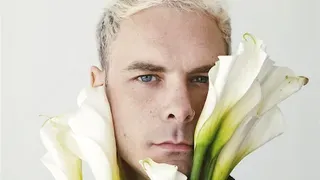June 20, 2020
Hulu's 'Love, Victor' Tells Journey of a Latino Gay Teen
Russell Contreras READ TIME: 2 MIN.
The 2018 film, "Love, Simon," brought a fresh perspective to the first love, coming-of-age genre through the eyes of a gay teen.
Exploring love's innocence, isolation, and fear of rejection, the film showed that a story about an LGBTQ character could transcend and be included in the narrative of American life. But like most LGBTQ projects, it was told from the experiences of a white gay male.
"Love Victor,'' a spinoff series, premieres Friday on Hulu. It takes the universe of "Love, Simon" into a new level, adding class, race, and ethnicity in the mix as another teen walks through the same love conflicts.
The series follows Victor Salazar, a Latino high school student struggling with his sexual identity and life in school. Portrayed by Michael Cimino, Victor's working-class, conservative Catholic family relocates to Atlanta from Texas. Victor immediately reaches out to Simon via social media to lash out at Simon's "perfect life."
Victor believes he's gay, too. That is, until African American student Mia Brooks (Rachel Hilson), the school's most popular girl, falls in love with him.
Victor joins the basketball team and gets a job at a coffee shop to pay for the fees. The other boys give the new kid "bro hugs." Meanwhile, his sister endures racist taunts, being called Dora the Explorer. Their parents continuously argue.
Still, Victor can't take his eyes off Benji, played by George Sear. He's an openly gay classmate who often stares back.
"Its is a great honor to represent the Latino community and not just the Latino community, but the LGBT community in a way that can positively affect people's lives," Cimino told The Associated Press in an interview.
For Latinos, the series is as groundbreaking as "Love, Simon." True, there have been other Latino LGBTQ-themed shows like the Starz drama "Vida." But "Love, Victor" is a family-friendly project placed in the not-so-Latino-friendly region of the American Deep South.
Cimino said gay Latinos aren't abstract concepts to him. They are family. He said he molded the portrayal of his character on the coming out experience of an older cousin.
"He is a very special person for me, and being able to have this communication with him and being able to build the character from his personal experience and what he had to go through meant a lot to me, "said the actor. "And it obviously meant a lot to him."
___
Associated Press writer Marcela Isaza contributed to this report from Los Angeles.






